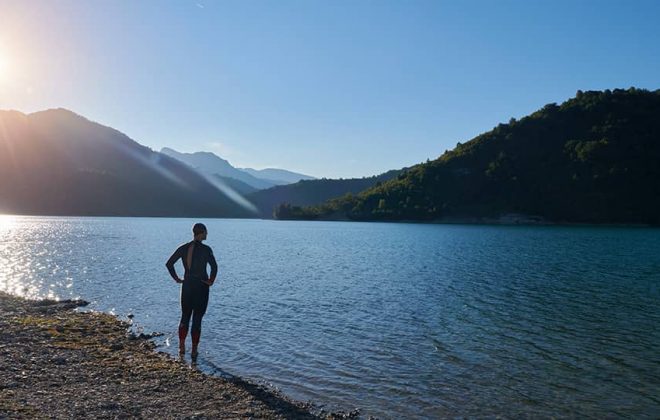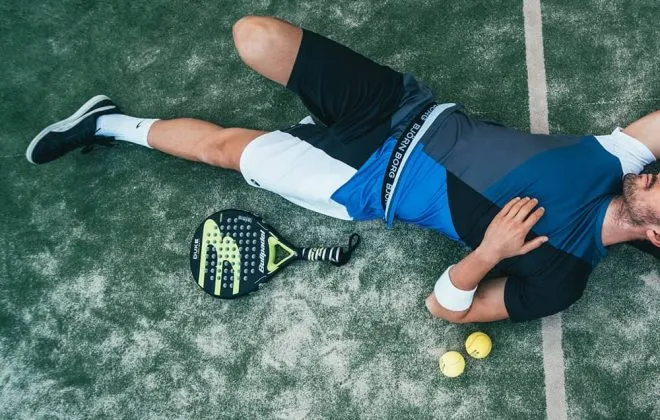Flying To Run A Race? Beat Jet Lag With These Expert Travel Tips
Athletes are often on the go and travel frequently. Flying to training camps, competing in different locations or simply getting to their daily commitments. Agenda can get pretty packed – especially around race weeks. So, knowing how to prevent travel fatigue (and beat jet lag when needed) is really helpful to be able to save energy and use it for training & racing instead.
Moreover, heavy training schedule taxes athlete’s reserves, pushes its body to the limit and weakens immune system. There’s a fine line between being fit and being sick and pretty much every athlete can tell a story how he caught a cold or a stomach ‘bug’ right before the competition.
Needless to say it’s super frustrating and renders the whole training process useless.
That’s why athletes should be extra careful when they travel – to take good care of themselves and reduce overall stress as much as possible. It doesn’t matter how long the trip takes or whether it involves flying, taking a bus or driving. Health and comfort should come first.
Travel tips for athletes to beat jet lag & prevent travel fatigue
Getting from one place to another puts a lot of physical and mental stress on the body. Packing, carrying heavy luggage, sitting in a pressurized cabin or next to an open window, being in an unfamiliar environment, queues, delays, different language – all of that and many more bring a lot of unnecessary fatigue and tiredness.
The longer the trip the more external factors athletes are exposed to and the bigger the stress.
Flying or prolonged travel either East or West adds a whole new dimension to travel stress called ‘jet lag’. It’s a consequence of getting to a place several time zones away and creates imbalance between body’s internal clock and local time. That affects sleep patterns, appetite, energy levels – pretty much all normal body functions.
For instance, the body’s internal clock might think it’s only 6PM, while it might already be 10PM where they’re currently at. So, a person might have difficulties falling asleep and instead will stay awake too late.
To beat jet lag essentially means to align the body’s internal clock with the local time as quickly as possible.
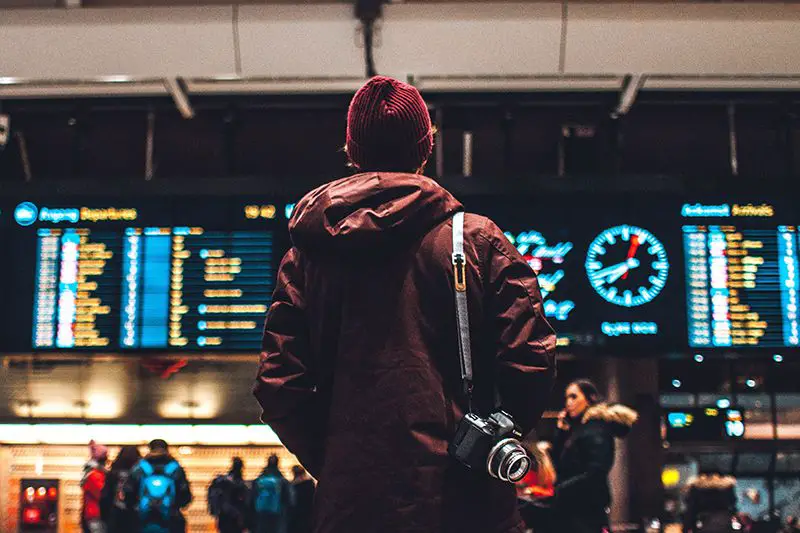
In this post I’ll share my travel tips for athletes that help to beat jet lag and prevent travel fatigue naturally – without pills or any specific remedies. These tips are in no particular order of significance.
Organizational travel tips
Regardless whether you’re an experienced traveler or going on your first trip, the whole process is quite taxing mentally. All the haste to finish preparations on time, keeping track of things to do, packing, queues, delays and so on.
Staying organized helps to reduce that mental stress or stop it from accumulating. This will help to prevent travel fatigue that builds up during the trip and even beat jet lag.
#1 Buffer in some time
There aren’t many things that are more stressful than being late for something. Worrying whether you’ll make it stimulates production of adrenaline and drains mental energy very quickly. It can even leave a person exhausted without any specific physical activity.
So, plan to have some extra time – just in case. Take it easy and enjoy the travel experience, don’t rush through it. Buy yourself a magazine, call someone or watch a movie – you’ll arrive much more refreshed.
#2 Get an aisle seat
During a long journey – a bus ride or a long-haul flight – one of the most important things is where you sit. Generally, aisle seat is much better than a window seat, as you get a lot of freedom of movement.
This one is my favorite travel tip. I used to always choose a window seat, so that I can look outside and nobody could bother me. But over time I realized that being stuck in a corner and always asking the neighbor to stand up so that I can go to the restroom is not that fun.
On the contrary, being able to stretch your legs into the aisle, stand up, go to the toilet without bothering anyone is a huge thing. These small ‘privileges’ add up and can really increase the overall comfort of the journey.
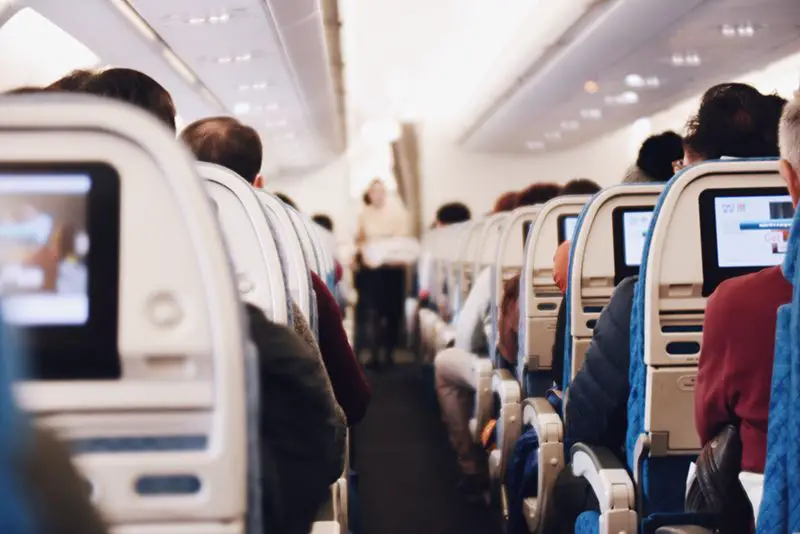
#3 If possible, plan your arrival time
Many travelers don’t pay attention to the time they arrive at destination and choose the cheapest ticket instead. Planning the arrival time, however, is one of the most important ways to beat jet lag.
Sometimes after arriving to a new place it’s hard to fall fall asleep due to the stress of traveling. Or when you’re traveling East and your body believes it’s still early. In this case arriving late in the evening often results in people staying up too late and oversleeping the next day, which only extends the time the body needs to adjust to a new time zone.
Arriving early in the morning, on the other side, means that it will be a long and tiring day ahead. Some people take a long nap upon arrival, which also doesn’t help to adjust to a new time zone, because they have hard time to fall asleep in the evening.
Personally, I found that it’s better to arrive somewhere around midday – 3PM being the absolute latest.
#4 Get ready ahead of time
Try to get plenty of sleep and make sure you’re well-rested before you travel. It’s a stressful time, so the more relaxed you’ll be the better. It’s usually during traveling that many athletes get sick. Especially when they travel for a race and are at the peak of their form.
I once traveled 35 hours by bus to a World Championship and woke up with a cold 2 days later. My immune system was weakened from the hard training in the weeks prior.
Some athletes make a mistake of doing a hard session right before traveling to compensate for ‘hours of sitting’.
In reality, pushing the body too much stimulates the release of cortisol (stress hormone) and weakens the body’s immune system. As a result, it can’t fight bacteria as effectively and there’s a higher risk of getting sick.
#5 Pack light
Don’t carry too many things with you. Avoid a situation when you have a camera on the neck, shopping bags in one hand, a backpack on your back and documents in your hand.
Having just one well-organized backpack removes the possibility to lose something and is much easier to carry. Put everything but real essentials into a suitcase instead.
#6 Don’t forget sleep essentials
Sleeping well during a trip is important to be able to beat jet lag and acclimatize to a new place quicker. That includes napping during a flight or a bus ride (if you arrive in the morning), as well as sleeping well in a new place.
Pack a compact neck pillow, an eye mask, ear plugs or even noise-cancelling headphones. These small things can really make a difference in sleep quality which is essential for athlete’s recovery.
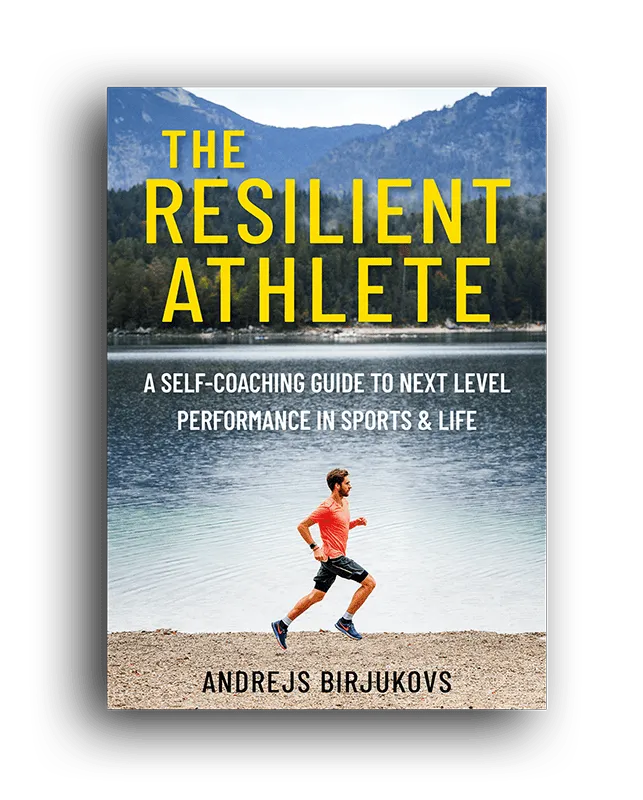
The Resilient Athlete
A Self-Coaching Guide to Next Level Performance in Sports & Life
Are you aiming to become a resilient athlete who is able to withstand any pressure? Be able to jump on any opportunity? Take any challenge life throws at you head on?
Then this book is for you.
Learn moreNutrition travel tips
We are what we eat. Food plays a major role in how we look and, definitely, how we feel.
So, being strategic and careful about what we eat during the trip really helps to optimize energy levels and prevent travel fatigue.
#7 Don’t overeat
Consuming large meals puts a lot of stress on the stomach and digestive system. Doing so before or during traveling means the body will spend more energy on processing food and will get more tired as a result.
So, instead of consuming a large meal before or during the trip, try to spread it out and focus on smaller portions instead. Better yet, stick to healthy snacks only. After all, most of the traveling time is spent sitting, so not much energy is required.
Read also: 9 Tips For Eating Healthy While Traveling And Having More Energy
#8 Take food with you
Eating healthy is a great way to prevent travel fatigue. But it’s only possible if you’re in charge of your meals. Instead of eating whatever airplane or train food you’re given, take lunch or dinner with you and pack some snacks. Buy a takeaway salad at the terminal and skip the pasta or sandwiches they provide during the flight.
Knowing where the food came from is the best way to avoid catching a stomach bug or getting food poisoning.
It would be very disappointing to not be able to race because of something so easily avoidable. However, if you’re willing to take the risk, though, try to stay clear of the following food groups:
- Dairy – gets spoiled quickly if not kept cold
- Rice – develops bacteria when left warm for more than 2-3 hours and not re-heated at specific temperature
- Ready-made sandwiches – develop bacteria if not stored cold or not re-heated at high temperatures
- Raw fruits & vegetables – may contain bacteria if not washed thoroughly
- Fish & seafood – most frozen products contain bacteria and cause poisoning if not cooked properly
No airline seems to guarantee top food quality. Even Emirates had an accident when almost 100 people got various degrees of food poisoning.
#9 Get healthy snacks
A great alternative to airplane food or junk, sugary and processed food (that promote inflammation) is to take healthy snacks with you.
Fruits and veggies, in particular, give the body vitamins & minerals, as well as help to reduce inflammation – exactly what is required to support the body. Apples, oranges, berries, carrot sticks, grapes, etc. – eat them as they are or blend in a smoothie before you travel.
Dry snacks (like a trail mix, nuts, dried fruits) are a great addition and will help to control the blood sugar low and keep you feeling full.
#10 Hydrate well
Dehydration slows down all body’s functions – from metabolism to brain processes – and virtually ‘robs’ the body of energy. Therefore, providing the body with liquids on a frequent basis is a great way to prevent travel fatigue.
It’s best to avoid sugary drinks (like juices or soda), as they put stress on digestive system and might promote inflammation. Instead, stick with plain water or tea. Bring your own bottle and keep refilling it at restaurants or water fountains.
If you drink a lot don’t forget to add electrolytes – either by adding tablets to the water or adding salt and squeezing in citrus fruits (lemon, orange).
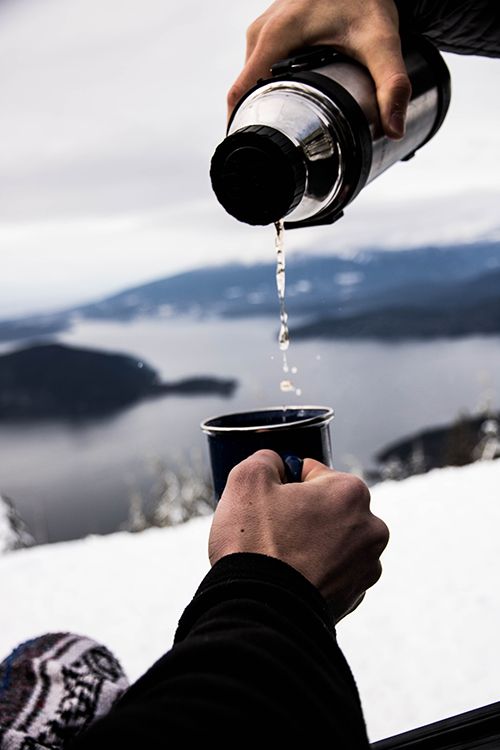
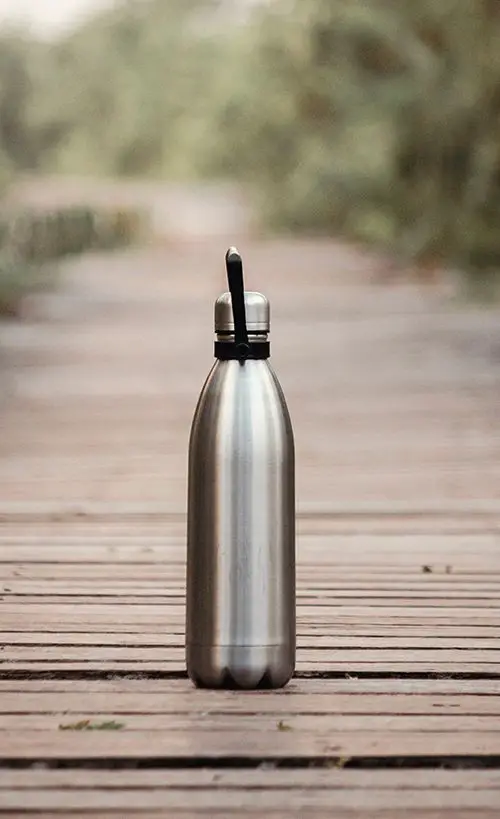
Keep in mind that when you’re flying you need to drink even more to compensate for the altitude. Even though the cabin is pressurized, it’s still the equivalent of being at around 2,000 – 2,500 meters above sea level.
#11 Stay away from alcohol
On many flights alcohol is being served free of charge and for some travelers it’s an opportunity to enjoy themselves. However, not consuming any alcohol during the trip is one of the best ways to prevent travel fatigue.
Athletes, in particular, should avoid consuming alcohol, as it dehydrates the body, forces it to burn through vitamin & mineral stores (to process the toxin) and interferes with the fat metabolism. All of that has a direct negative impact on recovery and performance.
Practical travel tips for athletes
As much as traveling is stressful, I do enjoy the experience. It’s a great way to spend some quality time with yourself without distractions.
However, if you’re not comfortable or are stressed, you can’t really switch off and enjoy the experience.
#12 Dress comfy and in layers
The most important thing to enjoy traveling is to be comfortable. That means having clothes on that don’t rub anywhere and are not tight. During a long travel day the least you want is to sit and dream about the moment you will take off those jeans. Put on a pair of sweatpants or your pyjamas straight away.
Also, remember to dress in layers. It can get both cold and warm during the trip – having the flexibility to put on or take off an extra shirt helps to regulate body temperature.
Put a short sleeve shirt, a jumper and a jacket and take a long sleeve short with you. That should give you enough options to choose from
#13 Use compression clothes
If you are going to spend a lot of time sitting, it’s a good idea to put on compression tights or at least compression socks. These help to promote blood flow in the lower body that tends to get tight during long periods of sitting.
There are also compression clothes for the upper body, but those aren’t that useful – you can always move your arms and torso around.
#14 Sanitize
One of the best travel tips for athletes is to use the anti sanitizes to prevent bacteria. While it doesn’t help to beat jet lag or prevent travel fatigue directly, it can greatly reduce the risk of catching a cold or getting sick.
As we travel we are touching so many things that other people have touched before. Even though we are washing our hands frequently, there is no guarantee others are doing the same (and who knows what they did with those hands). Athletes, in particular, should sanitize as often as possible to prevent bacteria from spreading.
Read also: How To Avoid Getting Sick In Winter – 19 Tips For Athletes To Stay Healthy
#15 Have things to do with you
Having things to do while you travel helps to take mind off things and relax.
In my view, the best part about traveling is that you are forced to switch off and spend some quality time with yourself. Even when you have some unfinished business, often you can’t do much about it.
For some that’s annoying, but I do enjoy it. That’s the perfect time for doing all the things I’ve put aside. Reading articles I’ve saved for later, calling family and friends to catch up, writing a training diary, planning the next vacation, listening to an audio book or a podcast or reading a regular book.
There’s so much things we put on hold on daily basis. Why not use the travel time to do them and appreciate that time you have, instead of ‘killing’ it?
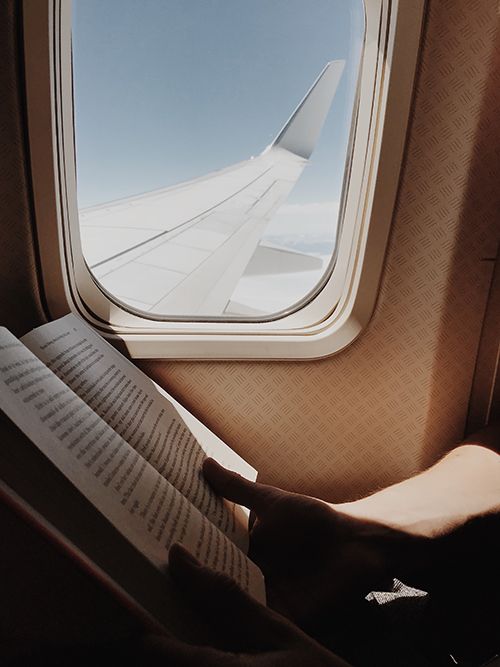

#16 Stretch and mobilize
Try to get up and stretch every hour or so. If you’re hydrating well you’ll be going to the restroom often anyway, which is the reason why book an aisle seat.
What you can also do is get a mini foam roller to roll out the feet while sitting and mobilize calves and hamstrings once you arrive. A quick roll can feel as good as a massage and help to prevent travel fatigue.
#17 Do an easy exercise as soon as you settle in a new place
Instead of scheduling a hard session before traveling, do an easy exercise upon arrival. Light physical activity helps to beat jet lag and minimize the the negative effects of traveling.
It’s best to do exercise outside and breathe some fresh air. I personally like to go for a long walk in a new place to explore the surroundings.
If it’s too late, just do a mobility flow or a yoga sequence (like sun salutation) to get the body moving.
Read also: 12 Ideas How To Stay Fit While Traveling And Enjoy The Process
#18 Sleep ‘where you race’
A great way to beat jet lag is to move to a destination time zone early. Set your clock to the destination time before you leave and follow that.
Start preparing yourself several days in advance – while you’re still at home. Start going to sleep 30 to 60 minutes earlier or later (depending on whether you’re flying East or West). This will help the body to adjust gradually to the time zone you’re going to.
Also, be strategic when you sleep – if you’re flying during the day and arrive late in the evening – do your best to avoid sleeping on the plane. Otherwise you’ll have hard time falling asleep in the evening.
Whatever you do, don’t let yourself nap for longer than 20 minutes after you arrive.
Resist the temptation to nap longer and go for a walk instead. Short power naps of less than 20 minutes are great to mentally recharge, because the body stays in REM and light sleep phases. During longer naps, however, the body gets into a deep sleep phase and that has an impact on the sleep quality during the upcoming night.
#19 Prioritize convenience over cost where it matters
Finally, build extra comfort into your travel day and the first few days of your trip. That can really reduce the mental stress of the process of getting from one place to another and arrive less tired.
Over the years I learned that when you travel for purpose and not for fun it’s best to minimize stress to maximize your performance
Sometimes that is paying for taxi instead of waiting for 30 minutes for a bus in the cold. Or taking an Uber instead of carrying the suitcase for 2 kilometers.
Spend your first night in a quiet and private room, if possible. When you’re exhausted, the last thing you need is an endless noise of people going in and out of the room or dancing and screaming in the lobby behind the wall (like we had before climbing a volcano in Indonesia).
Also, don’t plan intensive sightseeing as soon as you arrive. And don’t make your arrival day your one-and-only chance to see the Vatican, Statue of Liberty or anything else that might involve big queues.
Did you find this information useful? Share the post with others using the buttons below.
Have an opinion? Share via links below and tag @theathleteblog
Andrejs
GET A FREE TRAINING PLAN
Subscribe to my email list and get access to a free 4-week “back in shape” training plan
You’ll also get two full-body strength sessions and some other goodies!
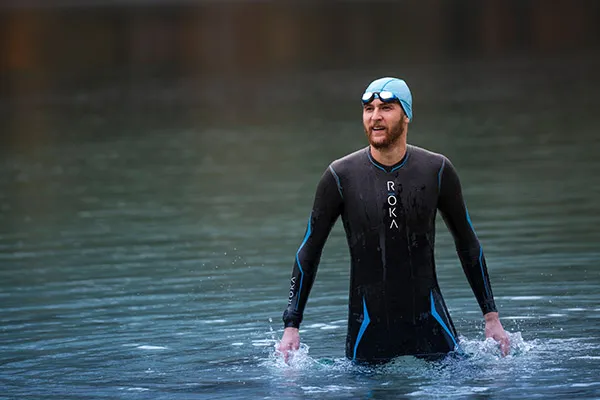
How did I get here?
Hey there! My name is Andrejs and I am here to inspire, entertain and get you fit for any adventure.
I went from being an over trained pro athlete to an endurance coach sharing how to listen to your body and live life to the fullest.
Traveling, new sports & activities brought new meaning to my training and made it much more effective, fun and enjoyable. And I'm here to help you do the same.
